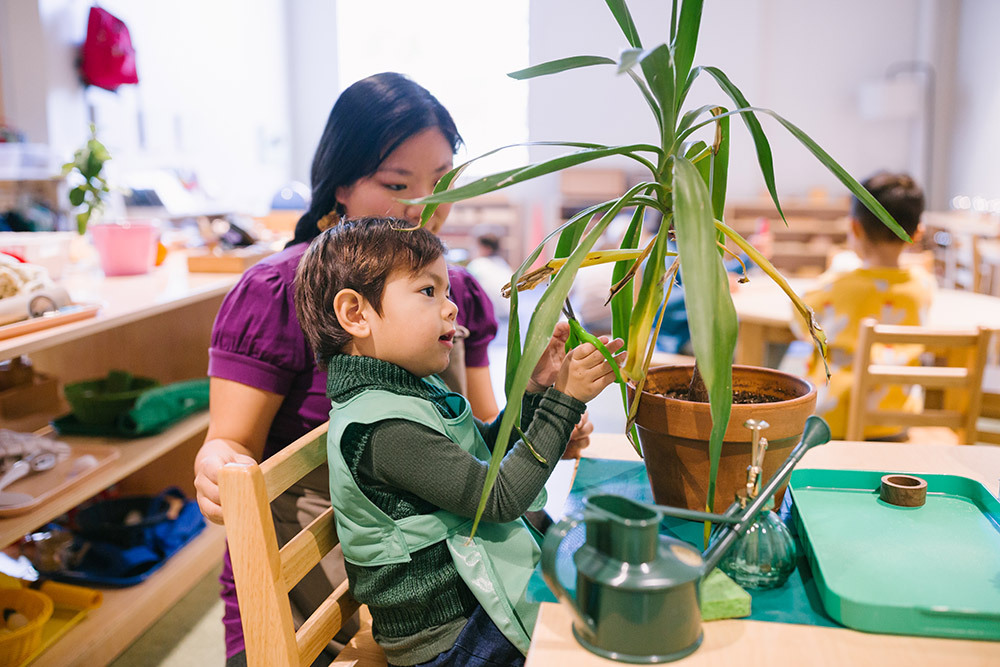
Enrichment Programs
Our Enrichment Programs offer children the opportunity to dive deeper into different areas, exploring interests and building mastery. Offered both during the school day and after school hours.
Season 1 will be running from August 13 to October 4.
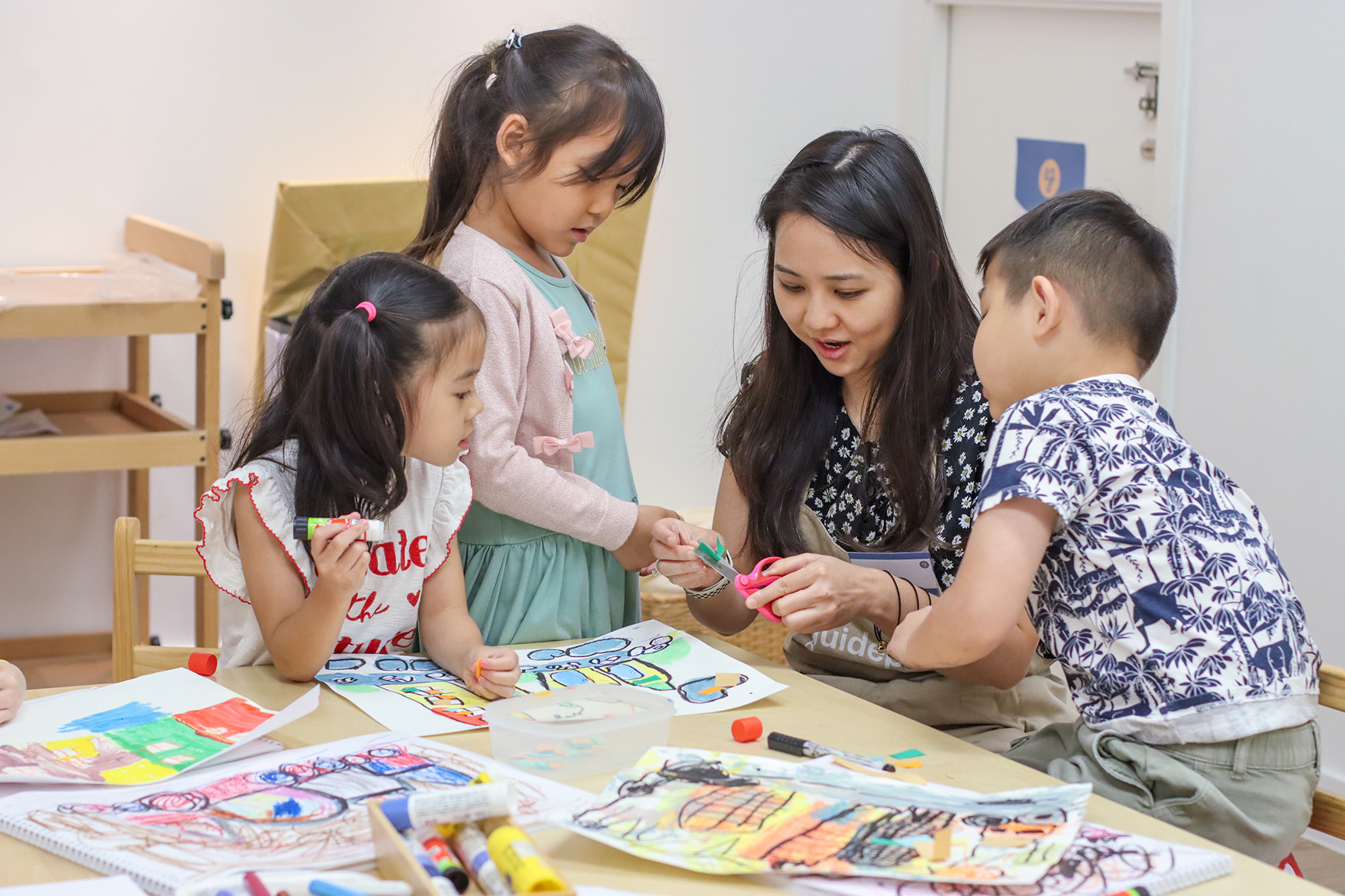
Montessori Kitchen
Cooking is a practical life skill that involves many familiar subjects, such as math, science, and language but applies them in a natural everyday way. The children will work their way through a recipe, identifying ingredients, measuring and counting what is needed, and then mixing everything together to create a delicious dish.
Exploring the world of cooking and food helps children refine their sensory perception, understand order and sequence, and develop hand-eye coordination and fine motor skills.
Cooking and reading recipes provides a fun opportunity to learn new words and apply them right away. Children will learn the names of different ingredients, cooking methods, and how to describe tastes.
Adding different quantities, measuring volume, and scaling up recipes is a great way to apply simple math concepts to everyday life. Children will learn different ways to measure and weigh food ingredients, using a range of appropriate tools.
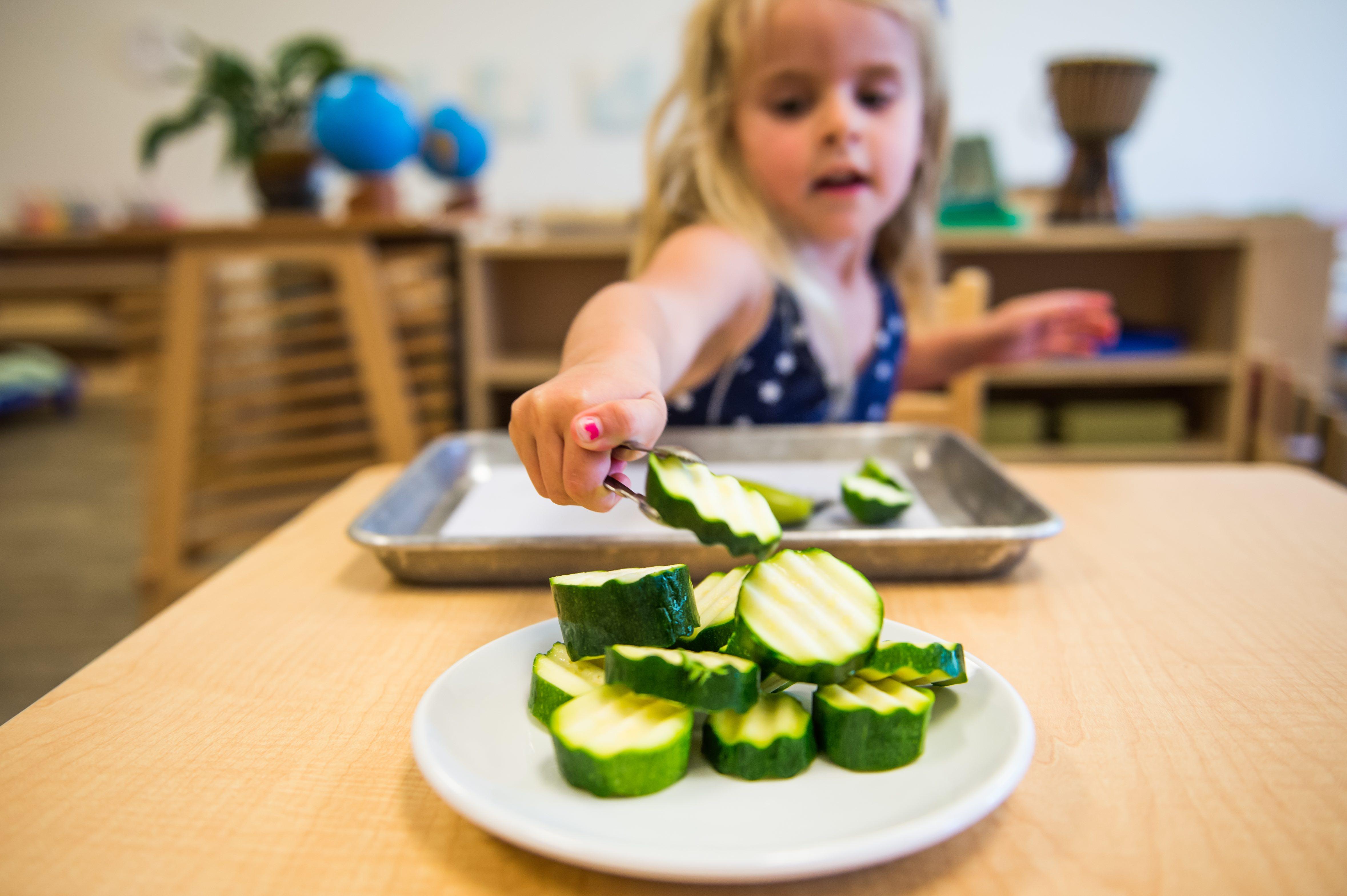
Montessori Garden
Observing, understanding, and cultivating different types of plants builds an appreciation for and understanding of the natural world. In this program, your child will engage with different gardening activities every week, learning to identify and grow flowers, vegetables, and more.
Join us to encourage children to explore and appreciate nature through various activities!
In this program, your child will refine their sensory perception, understand order and sequence, and develop hand-eye coordination and fine motor skills.
Observing how plants grow provides a fun way to learn the life cycles of various species, and understand how different interventions produce different outcomes.
Exposure to simple agriculture gives children insight into where their own food comes from, what grows in what season, and what types of foods are easiest to produce.

Mini Makers
In Mini Makers, your child will make many things! Sort, stack, stick, or sew; it’s all about creativity and fun. It’s the ideal program for young makers interested in DIY, creating, crafting, tinkering and learning.
It's time to create, learn, and grow with Mini Makers!
Your child will engage in the entire process of building things, from identifying the need, designing the solution, and seeing her ideas take shape.
Working alongside classmates with similar interests, your child will work together to bring creative inventions to life.
At the end of each unit, your child will have something self-designed and self-created to take home.
Offered by Guidepost Family Club Limited
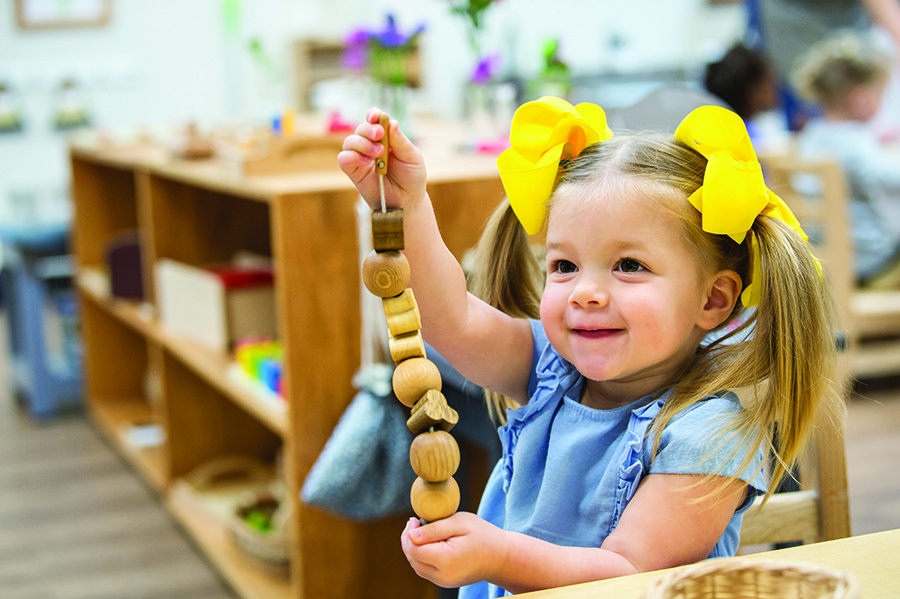
English Literacy Arts
Literacy Arts breaks down language learning into clear component skills which makes developing these new skills effortless. This program builds the foundation for English literacy that leads to an explosion of language, allowing your child to experience reading and writing with joy. With our approach to literacy arts, children become confident communicators.
English Literacy Arts guide children through spoken language and phonemic awareness (the sounds of words), creating words (writing), and reading.
Grammar is presented to the child in the same manner that they learn to speak; starting with nouns, articles, adverbs, and so on, building familiarity and confidence.
After each new concept is presented, there is always a return to the total language environment using verbal storytelling, poetry, story books and everyday speech. This allows the child to clearly see how the new concept is applied in our world.
Mandarin Immersion
Our Mandarin Immersion program breaks down language learning into fun, manageable chunks, making it easy for your child to build mastery in Mandarin! We build a strong foundation in Mandarin literacy, which unlocks a world of possibilities for reading, writing, and speaking with confidence and joy. Our approach helps your child become a confident communicator in Mandarin, opening doors to new friendships and adventures.
Offered by Guidepost Family Club Limited
Get Started
Complete our simple online application form to select campus, program, and schedules

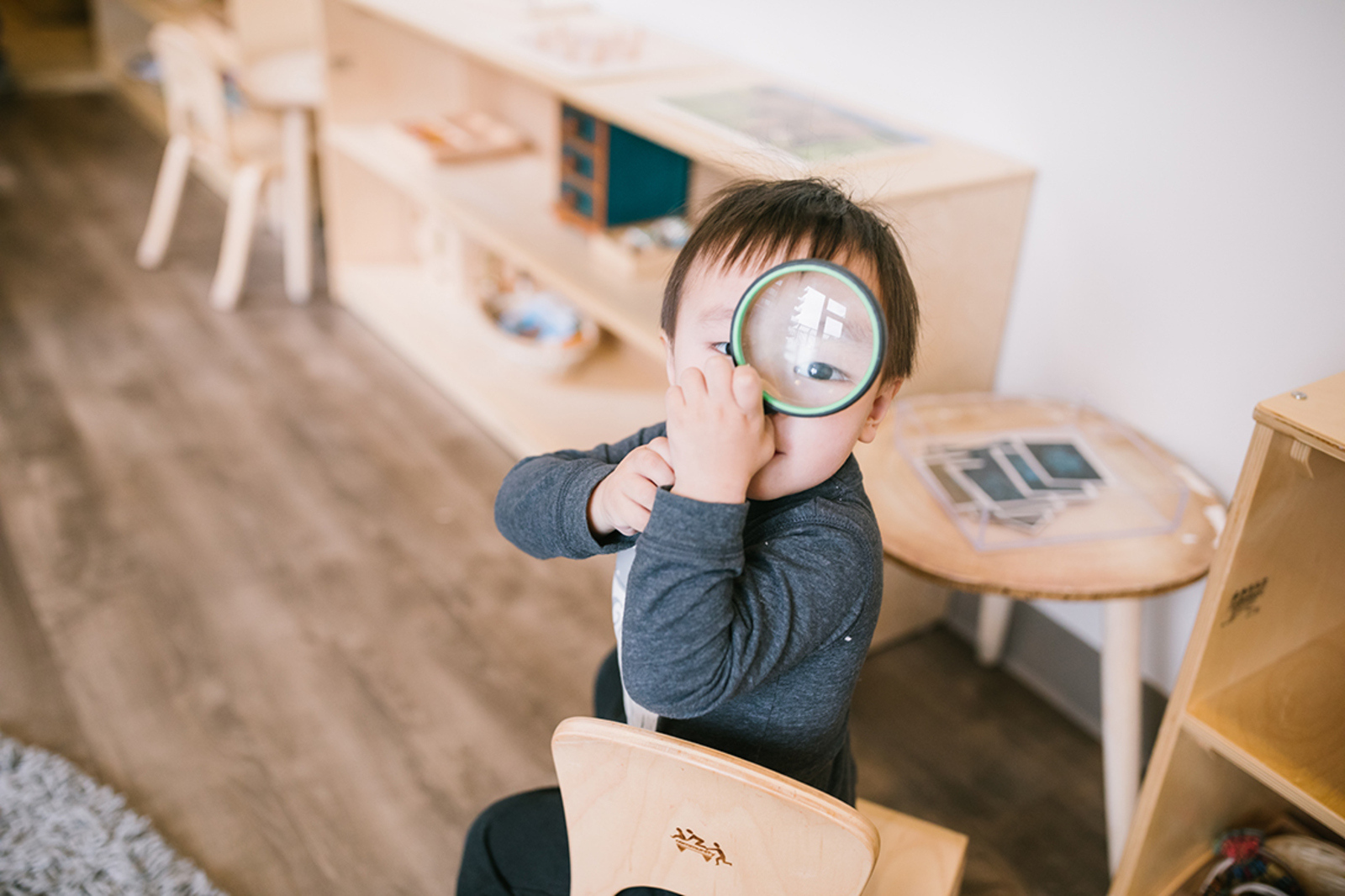
Enrichment Programs are available at the following locations
Offered by Guidepost Family Club Limited
Inquire Now
Complete this brief form and our team will get in touch


